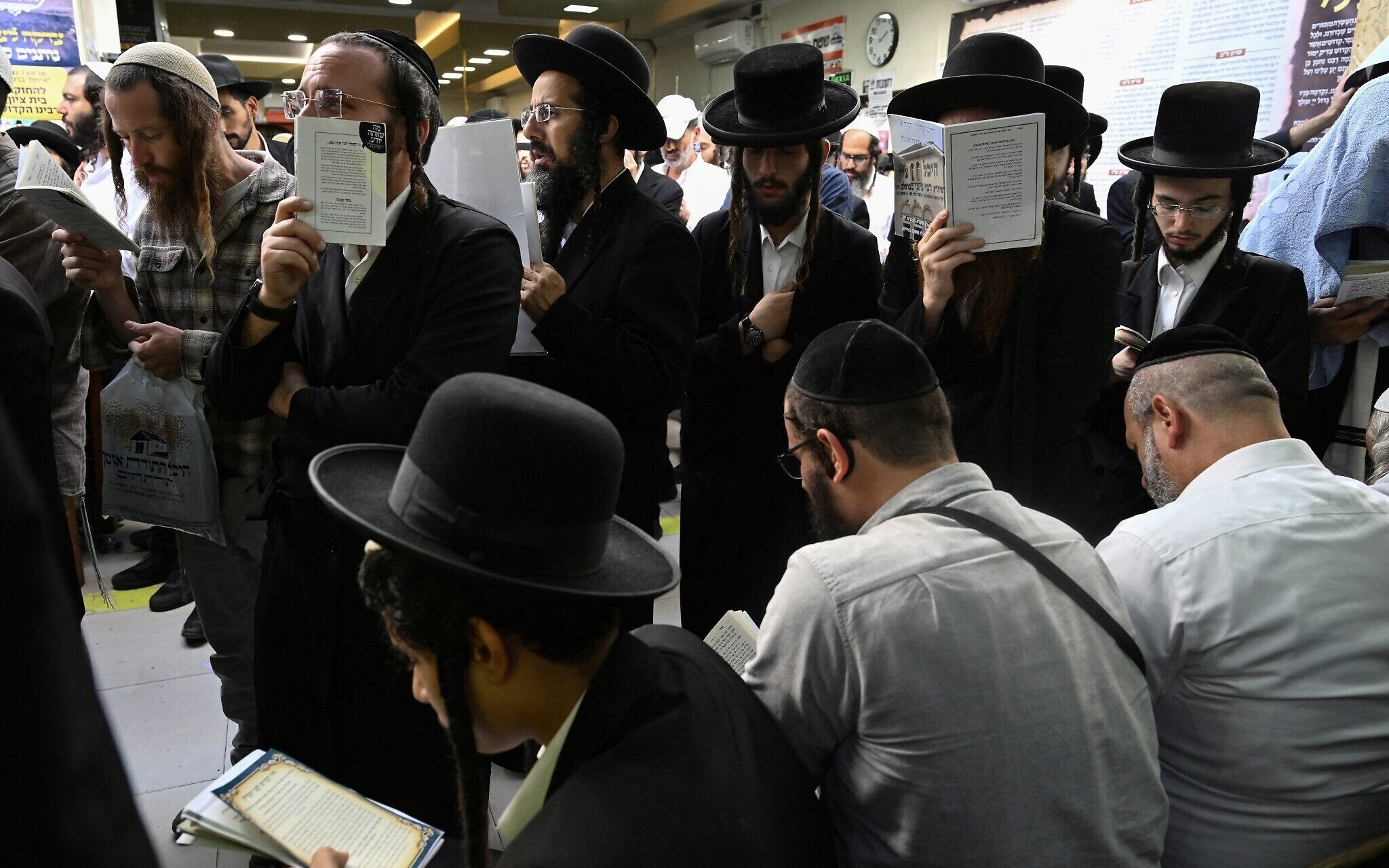El Al said it would operate a 300-seat flight from Bucharest to Tel Aviv’s Ben-Gurion airport on Saturday night, after Shabbat ends. Israir said that starting Sunday morning it would operate three flights with seat availability to bring back 540 passengers from the airports in Bacau and Bucharest in Romania to Israel.
Some 40,000 people, mainly Israelis, attended the pilgrimage to the 80,000-strong Ukrainian town, where Hasidic master Rabbi Nachman of Breslov (1772-1810) is buried. The pilgrimage takes place each year on Rosh Hashanah, the Jewish new year, celebrated this past week between Monday night and Wednesday night. Travel to the site has been possible only via neighboring countries since Russia invaded Ukraine in 2022.
Hundreds of Hasidim who had traveled to Uman via Tulcea in Romania were stranded after their flights back to Israel with foreign airlines were canceled due to congestion and significant delays at border crossings, El Al said.
The decision to send a special flight was made following a discussion between Transportation Minister Miri Regev, Finance Minister Bezalel Smotrich and MK Aryeh Deri, head of the Sephardic ultra-Orthodox Shas party, said the airline.
The Uman pilgrimage was mired in controversy this year after Shas and its Ashkenazi counterpart United Torah Judaism lobbied Prime Minister Benjamin Netanyahu to let draft-dodging yeshiva students participate without being arrested at Ben Gurion Airport.
Finance Minister Bezalel Smotrich, left, and Shas party chief MK Aryeh Deri attend a press conference at the Knesset in Jerusalem, May 23, 2023. (Yonatan Sindel/Flash90)
The request followed an IDF crackdown on Haredi draft evaders, who like other draft evaders are prohibited from traveling abroad. Attorney General Gali Baharav-Miara said the proposed preferential treatment for Haredim traveling to Uman would be illegal.
The journey has also faced pushback amid the war in Gaza, with critics angry that the government was subsidizing security and other arrangements for a pilgrimage abroad, many of whose participants hail from a sector that largely does not serve in the military.
The Rosh Hashanah pilgrimage was established by Rabbi Nachman’s disciples in keeping with his orders while alive that all his followers be with him in Uman for the holiday, to which he felt a special connection, according to Herzog College’s Da’at Jewish Encyclopedia.
Rabbi Nachman was the founder of an especially ecstatic branch of Hasidism, a branch of Jewish mysticism established by his great-grandfather the Ba’al Shem Tov (1700-1760). He rose to fame in Breslov — the Yiddish pronunciation of the modern-day Ukrainian town Bratslav — and moved to Uman several months before his death, citing a desire to pray for the souls of Jews slain in pogroms there.
Sam Sokol contributed to this report.




